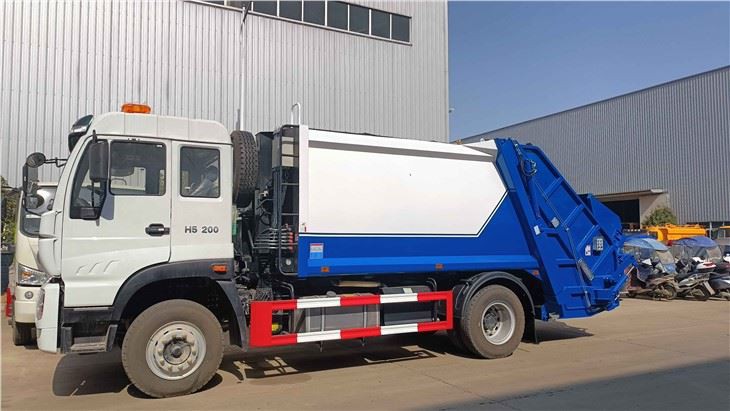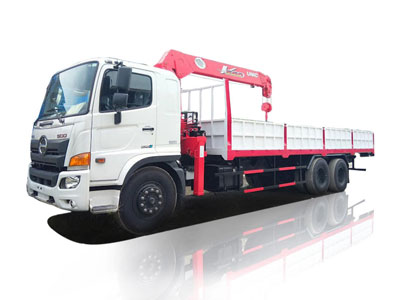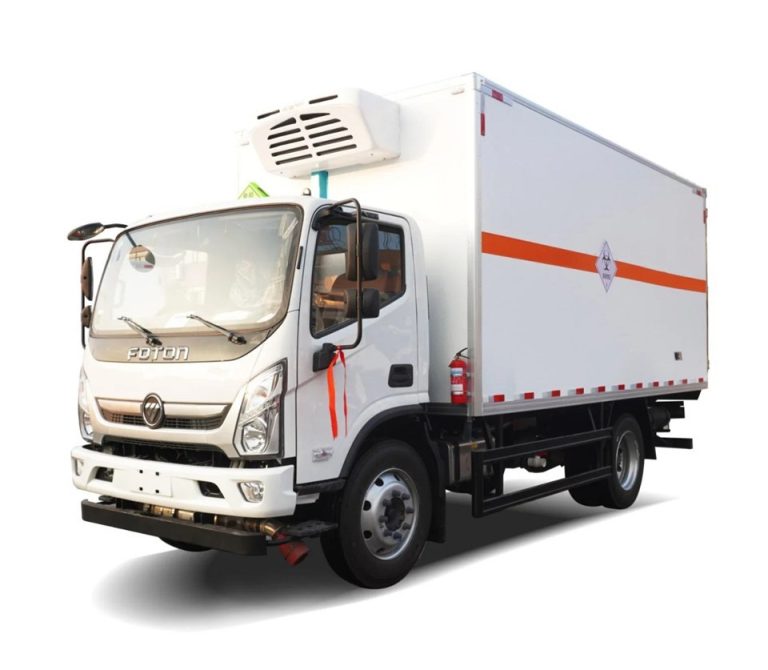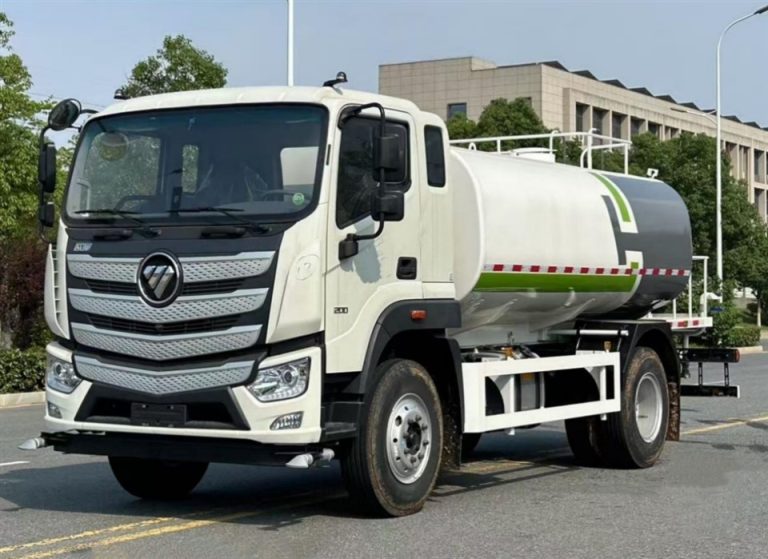Road sweeper lorries play a crucial role in maintaining the cleanliness and safety of urban environments and highways. In this article, we will explore the various aspects of road sweeper lorries, including their features, types, benefits, maintenance, and operational tips. This comprehensive guide is designed to provide value not only to municipal workers but also to anyone interested in road maintenance and environmental cleanliness.
What is a Road Sweeper Lorry?
A road sweeper lorry, commonly known as a street sweeper, is a specialized vehicle designed to clean the road surfaces. It removes dirt, debris, and litter using various cleaning mechanisms that can include brushes, suction, and water sprays. These vehicles are essential for enhancing the appearance of streets, preventing pollution, and promoting public health.
Key Features of Road Sweeper Lorries
Road sweeper lorries are equipped with a range of features that make them efficient and effective in their cleaning tasks:
- Brushes: These are typically located at the front and can rotate to sweep debris into the collection bin.
- Suction System: A powerful suction system helps to pick up fine dust and small particles.
- Water Sprays: To minimize dust during cleaning, water sprays are used to keep surfaces moist.
- Collection Bin: A designated area for collecting debris, which can be emptied at disposal sites.
- Operator Controls: Intuitive controls enable the operator to manage sweeping speed, brush settings, and other functions easily.
Types of Road Sweeper Lorries
1. Mechanical Sweepers
Mechanical sweepers use rotating brushes to dislodge dirt and debris from the road surface. They are often equipped with a suction system that collects the debris into a storage container.
2. Vacuum Sweepers
These lorries rely primarily on a powerful suction system to remove debris from roads. They are effective for picking up fine dust, leaves, and small litter.
3. Regenerative Air Sweepers
Regenerative air sweepers are designed to use air flow to lift and remove debris. They are efficient and reduce wear on the road surface.
4. Combination Sweepers
Combination sweepers utilize both mechanical brushes and suction to provide thorough cleaning. They are versatile and can handle various types of debris.
The Benefits of Using Road Sweeper Lorries
1. Improved Public Health
Regular street cleaning helps to reduce allergens, pests, and harmful substances on the roads, ultimately leading to better public health.
2. Enhanced Aesthetic Appeal
A clean road provides a more attractive environment for residents and visitors, contributing to community pride and property values.
3. Environmental Protection
By effectively removing litter and pollutants, road sweeper lorries help prevent these materials from entering storm drains and waterways, protecting local ecosystems.
4. Safety Enhancement
Regular cleaning of streets minimizes hazards such as debris that could lead to vehicle accidents or injuries to pedestrians.
How to Operate a Road Sweeper Lorry: Practical Tips
1. Pre-Trip Inspection
Before operating a road sweeper lorry, conduct a thorough inspection of the vehicle, checking the tires, brakes, fluid levels, and mechanical components.
2. Familiarize Yourself with Controls
Understand how to operate the lorry’s various functions and controls, including the steering, sweeping mechanisms, and safety features.
3. Choose the Right Time for Cleaning
Plan cleaning operations during times of low traffic to enhance efficiency and safety. Early mornings and late evenings are often ideal.
4. Use the Correct Speed
Drive slowly to ensure effective sweeping. Adjust your speed based on the road conditions and amount of debris.
5. Monitor Weather Conditions
Wet conditions can affect cleaning efficiency. Consider using water sprays to dampen surfaces, minimizing dust while ensuring efficient debris removal.
Maintenance of Road Sweeper Lorries
1. Regular Cleaning
Keep the lorry clean from dirt and debris accumulation, which can affect performance and efficiency.
2. Frequent Inspections
Check brushes, suction systems, and collection bins regularly for wear and tear. Replace worn parts as necessary to maintain performance.
3. Fluid Maintenance
Ensure that all fluids, including hydraulic fluid and fuel, are checked and replenished regularly.
4. Filter Upkeep
Clean or replace filters frequently to maintain optimal suction performance and protect the vehicle’s engine.
Cost Considerations
1. Initial Purchase Price
The cost of a road sweeper lorry varies widely based on type and features. Mechanical sweepers are generally less expensive than advanced regenerative air sweepers.
2. Operating Costs
| Cost Factor | Monthly Estimate |
|---|---|
| Fuel | $300 – $600 |
| Maintenance | $200 – $400 |
| Insurance | $150 – $300 |
| Labor | $2,000 – $4,000 |
3. Long-term Investment
While the initial costs can be significant, investing in a road sweeper lorry can lead to long-term savings in municipal cleanup operations and enhanced quality of life in urban areas.
Examples of Road Sweeper Lorry Applications
1. Urban Area Maintenance
Cities often use road sweeper lorries to keep streets, parks, and public spaces clean. Regular scheduling ensures high levels of cleanliness.
2. Highway Maintenance
State highways benefit from periodic sweeper operations to remove debris and enhance driving safety.
3. Events and Festivals
Special events may require additional street cleaning services, coordinating sweeper lorries to manage increased litter.
4. Construction Sites
Construction companies can use road sweeper lorries to clean access roads and surrounding areas, preventing debris from affecting local traffic.
Future Trends in Road Sweeper Lorry Technology
1. Automation
Automation technology is advancing, with some manufacturers developing autonomous sweeper lorries that can operate with minimal human supervision.
2. Electric Models
Total electric road sweeper lorries are emerging, offering reduced emissions and lower operational costs.
3. Advanced Sensors
Future lorries may incorporate sensors for improved navigation and debris detection, increasing efficiency and safety.
4. Sustainability Features
Manufacturers are increasingly focusing on features that lower environmental impact, such as efficient water recycling systems and biodegradable materials.
Frequently Asked Questions (FAQ)
1. How often should streets be cleaned?
The frequency of street cleaning varies by location and the amount of traffic and debris. Busy urban areas may require cleaning several times a week, while quieter areas may only need monthly services.
2. What is the average lifespan of a road sweeper lorry?
A well-maintained road sweeper lorry can last anywhere from 10 to 15 years, depending on the type and usage.
3. Can road sweeper lorries operate in winter?
Yes, many road sweeper lorries can operate in winter, but modifications may be necessary, such as using lighter brushes to prevent damage to icy surfaces.
4. What is the best type of road sweeper for urban use?
Mechanical and combination sweepers are often the best choices for urban environments due to their ability to handle diverse debris and conditions.
5. Are road sweeper lorries environmentally friendly?
Modern road sweeper lorries are designed with features that minimize dust and pollution, and electric models are becoming more popular, further enhancing their eco-friendliness.
6. How much does it cost to operate a road sweeper lorry?
Operating costs can range from $2,500 to $5,000 per month, depending on the type of lorry, maintenance, and labor costs.



